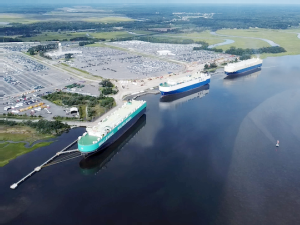The expansion of the world's fleet is expected to outpace global economic growth in 2011, a result of the industry's buying spree two years ago before the financial crisis severely slashed sea trade.
But low freight costs could provide arbitrage opportunities and cost-savings for commodity buyers, such as China, that aim to boost their imports of oil, iron ore, coal, grains and other commodities.
"Because the world economy didn't have a chance for sufficient restructuring due to the strong monetary and fiscal policy support by governments, we may face a prolonged period of depressed markets," Kyuho Whang, chief executive of South Korea's SK Shipping, said at an industry conference.
Years of Oversupply
"The long term predictions are that we will have an oversupply for many years and an oversupply of course leads to a depressed freight market," said Tor Svensen, president of Norway's maritime risk management group DNV.
In the dry bulk market, the world's fleet was forecast to expand by 11 percent, while global economic growth may only increase by 4 percent.
Still, there are opportunities for industry players to make profits on volatility in the freight markets.
Chinese speculators outside the shipping industry were taking advantage of low cost financing and buying dozens of domestic vessels in the hopes of selling them in the next few years for a large profit, said Michael Bonderup, general manager for Danish shipper Norden's China unit.
"Financing is readily available in China and this seems to be a good alternative for them," he said.
Industry executives agreed that China, India, Brazil and Russia would help limit the freight markets' downward spiral as emerging economies depend more on each other for oil and commodities. (Reuters)










